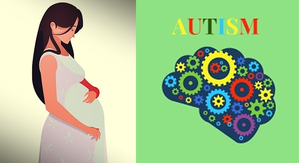New Delhi, March 18 (IANS). The infection of the mother during pregnancy may have an effect on the development of the children’s brain. This has been revealed in a study conducted by European researchers.
The results of this study published in the Peer-Ruined Journal ‘Brain Medicine’ may be important for neurodevaluate and psychiatric disorders such as autism, schizophrenia and depression.
The team of Slovakia’s Slovak Academy of Sciences examined the effect of the mother’s immune system to be activated in the children of newborns (MIA) on the Hippocampus pyramidal neurons.
Hippocampus is an important part of the brain, which helps in memory, feelings and thinking and understanding. Researchers found that inflammation during pregnancy greatly reduces the stimulation of neurons, which increases the risk of neurodevaluate disorders associated with the mother’s infection.
Dr. Eliyahu Dramenkov of the institute said, “Mother’s infection is a well-known risk factor for diseases such as autism, schizophrenia and depression. Our research shows that changes in the work of hippocampus neurons before birth can be a main reason for connecting these lies with these diseases.”
It is noteworthy that during pregnancy, the immune system is activated by infection, leading to chemical messengers called cytokines. These can affect the development of the brain of the child in the womb by crossing the cytokines placenta.
Researchers produced an MIA (maternal immune activation) from part of a bacterium called lipopolisacharide (LPS) in pregnant mice using a famous animal model, which stimulates the immune system. This was then examined by hippocampus neurons of children of newborn mice to detect how immune activation during pregnancy affected their stimulation.
“We noticed that the children’s neurons in contact with the MIA (maternal immune activation) needed a lot of excitement to get active,” the prominent writer of the study, Dr. Lucia Moravasikova said, had a very high stimulation, their reaction pace was slow and they were becoming less frequently. “
Moravasikova said, “This suggests that glutameteric neurotransmission is disturbing, which plays a very important role in learning, remembering and controlling emotions.”
In addition, the team found major changes in the hippocampal neuron function in newborns coming in contact with MIA. They found that neurons require a strong stimulation to be activated, indicating deteriorating stimulation.
-IANS
FM/Ekde










